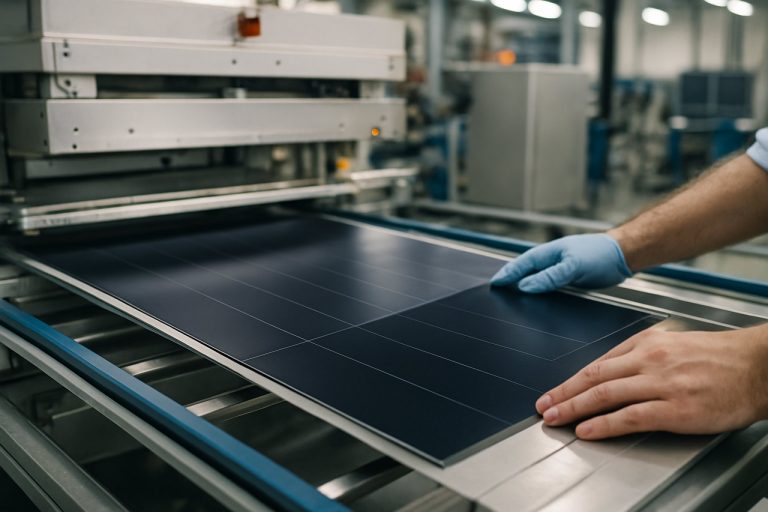
- Occupational therapy plays a crucial role in helping Veterans overcome challenges with hand and arm mobility, empowering them to regain independence.
- The Richmond VA Medical Center developed the Cobra Utensil Holder, a patented device that enhances the daily lives of Veterans by allowing them to use their own utensils comfortably.
- This innovation emerged from a collaboration between traditional therapy methods and cutting-edge technology, including 3-D printing.
- The utensil holder features ambidextrous cuffs and adjustable angles, offering flexibility and ease of use.
- It took less than a month to design and manufacture the device, but two years to secure a patent, highlighting the commitment involved in bringing the product to life.
- Richmond’s Office of Advanced Manufacturing and the Assistive Technology Program continue to drive personalized solutions, improving quality of life for Veterans through inventive collaborations.
For many Veterans, the road back to independence is strewn with obstacles that make everyday tasks seem insurmountable. Picture yourself unable to grip a pencil, button a shirt, or enjoy a meal without assistance—challenges that become colossal when hand and arm mobility are compromised. Enter the world of occupational therapy, where dedicated practitioners are igniting sparks of innovation to illuminate these paths.
Imagine the creation of a tool so simple, yet so transformative, that it redefines how Veterans engage with their daily lives. Richmond’s recently patented Cobra Utensil Holder has done just that. As part of the VA’s profound commitment to enhancing Veteran care through Assistive Technologies, this ingenious device emerged from a unique collaboration that fused traditional therapy methods with cutting-edge technology.
In a scene reminiscent of a workshop bustling with invention, an occupational therapist at the Richmond VA Medical Center faced a common yet daunting challenge. A Veteran under their care struggled with the most basic necessity: bringing food from plate to mouth. None of the adaptive utensils available off-the-shelf provided the flexibility needed.
With the problem clearly defined, the therapist drafted a rudimentary prototype using thermoplastic, laying the groundwork for innovation. The baton was then passed to the tech-savvy minds of the Assistive Technology Program and Richmond’s Office of Advanced Manufacturing (ROAM).
Their mission: to bring this vision from draft to durable reality. Utilizing 3-D printing and collaborative design, the team crafted a universal utensil holder that redefined adaptability. The holder’s design, equipped with slots to accommodate a range of standard flatware, introduced a game-changing flexibility. Veterans could now use their own utensils, maintaining a sense of normalcy and dignity with each meal.
Moreover, this device, characterized by its ambidextrous cuff, becomes an extension of the user’s hand. Capable of locking at various angles, it offers a seamless blend of functionality and familiarity, marking a departure from heavy, integrated alternatives that often stand out.
The path from concept to manufacture was swift, yet thorough, taking less than a month. But the journey to securing a patent was a meticulous ordeal—one that culminated two years later with well-earned recognition.
This breakthrough echoes through hallways where challenges are an everyday part of being. ROAM and the Assistive Technology Program are constantly at the creative forefront, tackling up to a hundred bespoke requests annually. From customized solutions for specific Veteran needs to broad applications in hospital operations, their influence and expertise percolate through every sector of care.
The takeaway? This is not just a triumph in technological advancement but a testament to human ingenuity and collaboration. It’s a powerful reminder that, when faced with adversity, innovation knows no bounds. As these programs continue to weave intricate new threads of possibility and independence for Veterans, one thing is clear: real change doesn’t just change lives; it restores them.
An Ingenious Solution: How the Cobra Utensil Holder is Transforming Veterans’ Lives
The Cobra Utensil Holder: A Closer Look
The Cobra Utensil Holder represents a significant advancement in assistive technology for Veterans, providing a tangible solution for those struggling with limited hand and arm mobility. This tool is more than a device—it’s a lifesaver for many Veterans seeking to regain independence in daily tasks. Here’s a detailed exploration of its unique features, the innovative journey that brought it to life, and the broader implications for the future of Veteran care.
Key Features and Specifications
– Ambidextrous Design: The utensil holder features a versatile cuff that can fit either hand comfortably, making it accessible to a wider range of users without requiring separate models for each hand.
– Adjustable Grip: Equipped with adjustable slots, the holder can secure various types of flatware, allowing users the flexibility to use their utensils in a way that feels familiar.
– Lightweight and Durable: Made from robust yet lightweight materials, the holder is designed for easy use without causing fatigue, an essential consideration for individuals with limited strength.
– Customizable Angles: The lockable angles enable users to find their ideal positioning, ensuring both comfort and functionality.
How the Holder is Made
The production of the Cobra Utensil Holder highlights the innovative fusion of traditional therapy requirements with modern technology. Utilizing 3-D printing, the team at Richmond’s Office of Advanced Manufacturing was able to quickly prototype and iterate on designs. This method not only sped up the development process but also allowed for precise customization to meet individual needs.
Real-World Use Cases
1. Mealtime Independence: The utensil holder is primarily designed to aid in eating, but its flexibility means Veterans can easily use it for other tasks, such as writing or grooming, enhancing overall autonomy.
2. Psychological Benefits: Regaining the ability to perform daily tasks independently can have a profound impact on a Veteran’s mental health, boosting confidence and reducing dependency.
Pressing Questions Answered
– Who can benefit the most from the Cobra Utensil Holder? Veterans with hand and arm mobility impairments—whether due to injury, illness, or age—can greatly benefit from the device. It offers a dignified solution without emphasizing the limitations imposed by their condition.
– How does 3-D printing contribute to its design? The use of 3-D printing allows rapid prototyping and customization, enabling quick iterations based on user feedback. This technology significantly reduces production time and costs compared to traditional manufacturing methods.
Industry Trends and Future Implications
The success of the Cobra Utensil Holder reflects a broader trend in the medical and assistive technology industries: personalized, adaptable solutions are at the forefront of therapeutic innovation. With a growing focus on user-centered design, we can expect to see more devices that combine technology with practicality to address specific user needs.
Actionable Recommendations
1. Integration in Rehabilitation Programs: Medical facilities and rehabilitation centers should consider incorporating such assistive devices into their therapy programs to enhance outcomes for patients with mobility challenges.
2. Patent and Intellectual Property Awareness: Innovators in healthcare technology should be informed about the patent process to protect their solutions, ensuring continued innovation in the field.
Quick Tips
– For Developers: Embrace rapid prototyping and user feedback to create solutions that are both effective and user-friendly.
– For Healthcare Providers: Regularly evaluate available assistive technologies to ensure patients have access to the most up-to-date and effective tools.
Related Resources
Learn more about developments in Veteran care and assistive technologies at the official U.S. Department of Veterans Affairs.
This exploration of the Cobra Utensil Holder demonstrates its potential to transform lives through ingenious design and collaborative efforts, fostering independence and dignity for those who have served.



